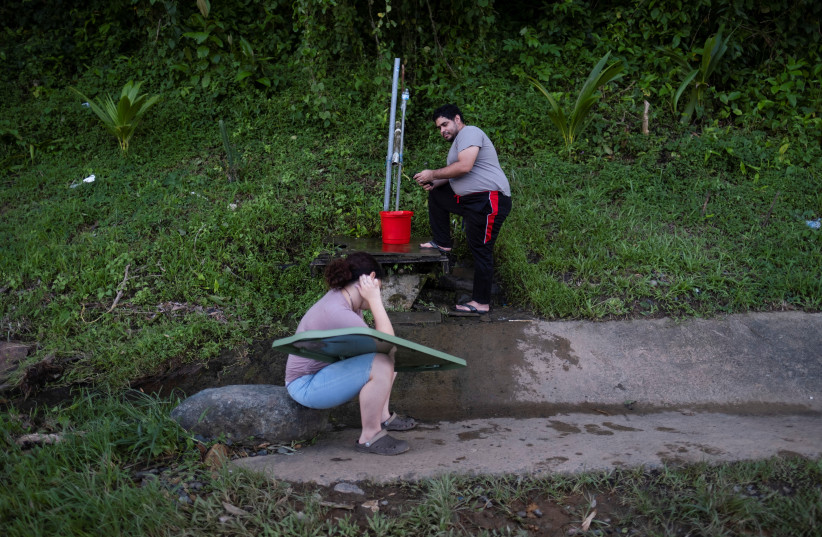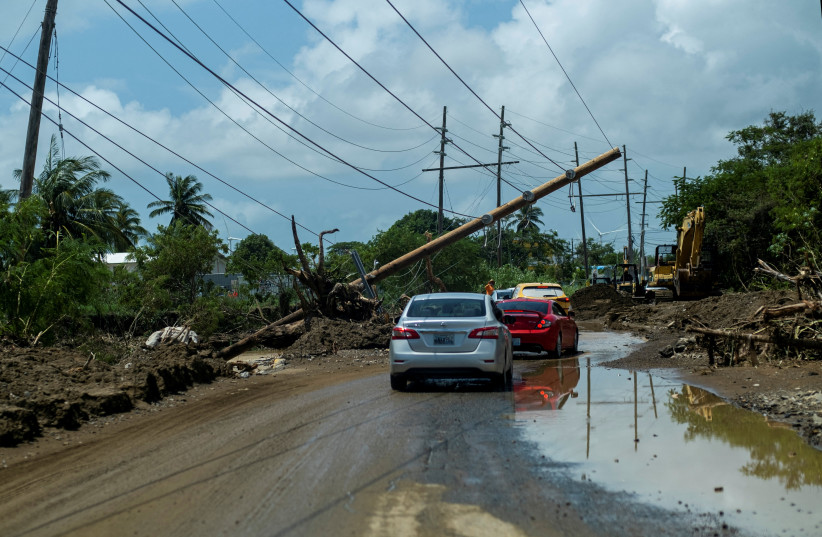Instead of attending Rosh Hashana services in Israel, a delegation of medical and psychological experts from the emergency medical service (EMS) organization United Hatzalah (UH) flew to Puerto Rico to help survivors of Hurricane Fiona that hit the area.
The team, which is comprised of four members of the Psychotrauma and Crisis Response Unit (PCRU) as well as two emergency medical technicians (EMTs), will provide psychological and emotional stabilization as well as medical care to residents adversely affected by the hurricane and the resulting floods in various communities in the southern part of the Island.
“After contacting several community leaders in Puerto Rico and assessing needs based on their reports as well as other local sources, we decided to send a delegation to provide residents with emotional and psychological support and treat any medical issues that we find along the way,” said UH vice president of operations Dov Maisel.
“Our Psychotrauma and Crisis Response Unit has a lot of expertise in responding to disasters and we have seen that this aspect of treatment, focusing on mental health, is often overlooked in disaster areas.”
The specialized PCRU has responded to several major incidents around the world following large-scale as well as more localized disasters. Some of the unit’s previous missions include responding to the Tree of Life Synagogue Shooting in Pittsburgh, Hurricanes Harvey and Irma, last year’s Surfside building collapse in Florida, and most recently the war in Ukraine and the ensuing refugee crisis in the neighboring countries.

PCRU director Avi Marcus said that since the unit’s creation in 2016, “we have taken the tools developed by leading psychologists and therapists dealing with the treatment and prevention of psychological trauma and acute stress reactions, and created a series of protocols and on-site treatments that can be used anywhere and at any time. Our goal is to help people regain a sense of control and build support networks together."
"By doing so we aim to alleviate the sensations of loneliness and helplessness, which are two leading causes of trauma-related stress. These are things that can debilitate even the most resilient of people and our goal is to communicate to those affected by the storm, and the ensuing floods, that they are not alone, and that they can reassert control over their own situations,” he added.
What are some of the most crucial needs to be addressed?
“We have learned a lot about how to provide psychological first aid and emotional stabilization since the unit was founded,” Maisel said. “This knowledge comes from our experiences both abroad as part of international missions and here at home in Israel. In Israel, our teams regularly assist people suffering trauma after experiencing day-to-day medical emergencies, as well as those experiencing or witnessing terror attacks and missile strikes."
"We are now bringing this knowledge and experience to help the people of Puerto Rico. We hope to work with those most affected by the fallout from the hurricane and we have one clear message, you are not alone. We stand with you and we are coming to help.”
The volunteers who flew to Puerto Rico have left their families and loved ones knowing that they will be missing the Rosh Hashana, the Jewish New Year, which is one of the holiest days on the Hebrew calendar.
Mission commander and director of international emergency management Gavy Friedson summed up the mission by saying, “We hope not only to treat people on the ground but also to educate others and train them on how to build resiliency in their own communities and connect those we help to other existing services and networks in their own communities as well as other international relief efforts."

"As a partner of OLAM, a network of Jewish and Israeli organizations that work in developing countries, we hope to work closely with our fellow partners as well as community leaders that are already active inside Puerto Rico. In this way, we hope that our mission will act as a force multiplier and enable people to help others in their own communities for many years to come.”
